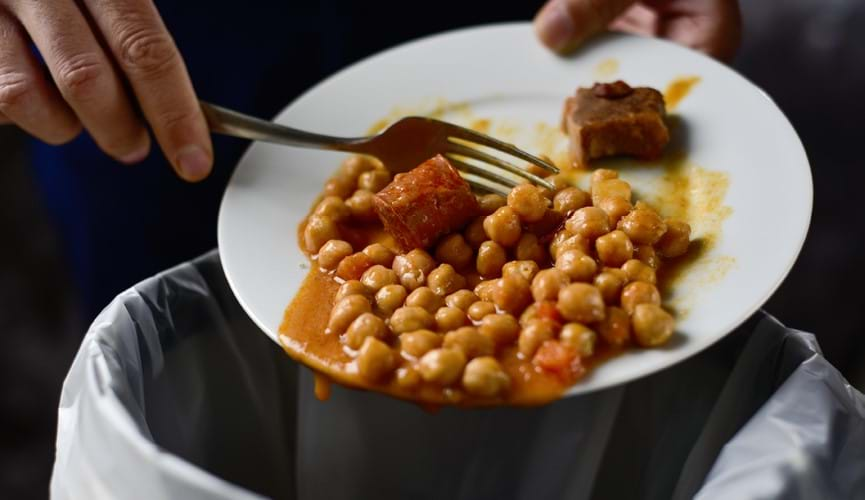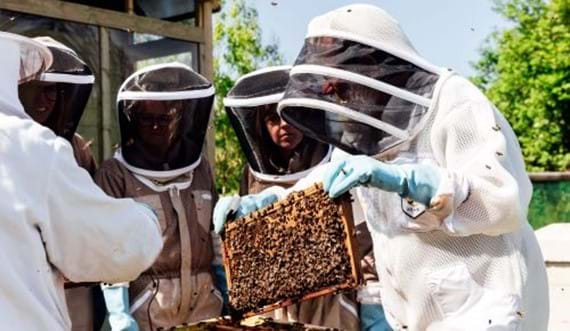How easy is it to reduce your food waste?
As a responsible retailer we are always looking at ways we can reduce the amount of food waste our stores generate.
It takes months, sometimes years, to plant, grow and produce so much of the food we eat – so it’s more important than ever that we try and stop as much as possible ending up in the bin.
When food waste ends up in landfill sites it’s piled up so high that oxygen cannot reach it, this means it ends up rotting. When food rots it releases methane gas which is said to be 25 times more harmful than carbon dioxide.
How much food is being wasted in the Channel Islands?
According to the Government of Jersey, a third of rubbish that ends up in household bins is food waste. That’s an estimated 14,000 tonnes of food waste per year. And more than a quarter of the avoidable food thrown away each year in Jersey is in its original packaging.
In Guernsey more than 50 tonnes of food waste is being collected from households each week. Figures show that households in Guernsey threw away an estimated 4,200 tonnes of food in 2018.
What is your Society doing to help reduce food waste?
We care about making sure as little food ends up in the bin, which is why we have partnered with food-sharing app Olio and the Guernsey Welfare Service.
Olio connects people with one another and with local businesses so surplus food can be shared rather than thrown away. Volunteers collect food from our Jersey stores when we have food that is past its best-before date. It’s then posted on the Olio app and people can request it.

We have been working closely with the Guernsey Welfare Service for a number of years. They aim to provide help to those islanders struggling financially.
Guernsey Welfare Service co-ordinator, Sue Le Friec said: ‘We bring the food back to our offices and sort it into what can be frozen, what needs to be refrigerated and what needs to be given away immediately.
‘We then distribute through our normal foodbank operation to families and individuals who are struggling to make ends meet. To be able to provide fresh produce, alongside our store cupboard donations, has made a big difference to our clients. We are very appreciative of our links with the Co-op, who were the first store we partnered with in this way.’
Top tips on how to reduce food waste:
Food waste generated by an average UK household is worth around £800 per year, which collectively adds up to £15 billion per year. Check out the tips below.
Shop Smart:
Buying in bulk is more convenient but research has shown this leads to more food waste. Making frequent trips to the supermarket every few days and buying what you need will cut down on food waste.
Plan your shop:
Before visiting your Co-op, plan the items you need so you don’t buy unnecessary things. This will help you save money and keep on that healthy diet.
Store food correctly:
Have a look at our fresh produce storage guide to see how you can increase shelf life of your fresh food.

Understanding use by date and best before date:
A common misunderstanding between the ‘best before’ and ‘use by’ dates results in a lot of food ending up in the bin. ‘Best before’ dates are about quality rather than safety, this doesn’t mean the food will be harmful, but it may begin to lose its flavour or its texture. After the ‘use by’ date on the label, do not use any food or drink, even if this does look or smell fine as it could put your health at risk.
Compost if you can:
Instead of binning your leftovers, why not put it in a compost bin. This way you are reusing food waste into energy for plants. Check out local community groups to see if you can donate your food waste to them.
Keep serving sizes in check:
Overeating is a problem for a lot of people, by keeping your portion sizes down this will cut down on food waste as well as keeping your weight down.
Use the Olio app:
Visit the Olio website to find out how you can share your surplus food with other people in the community.
Donate your surplus food waste to food banks:
When you have surplus food, instead of binning it why not donate it to local food banks as this will help those in need.





